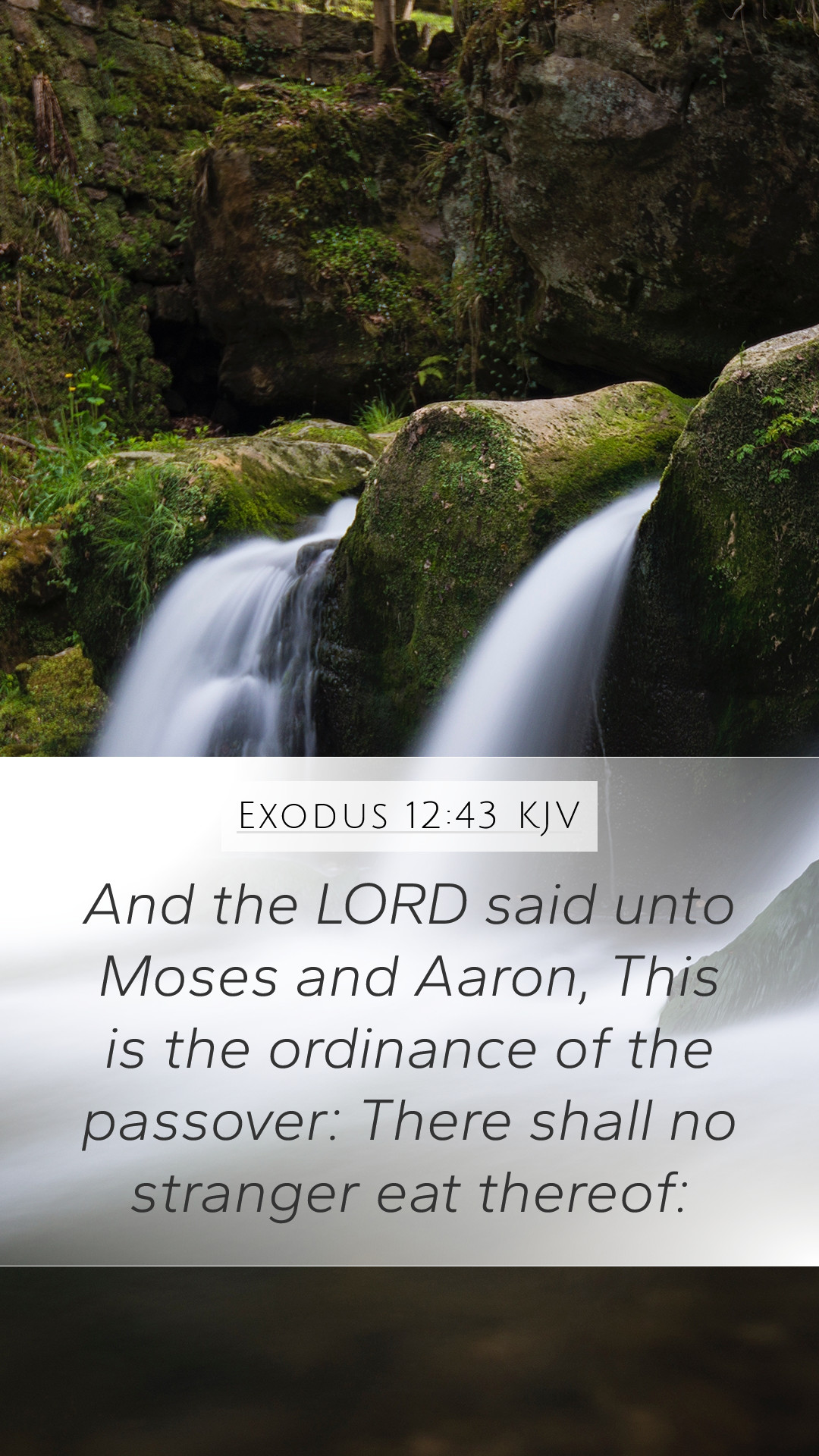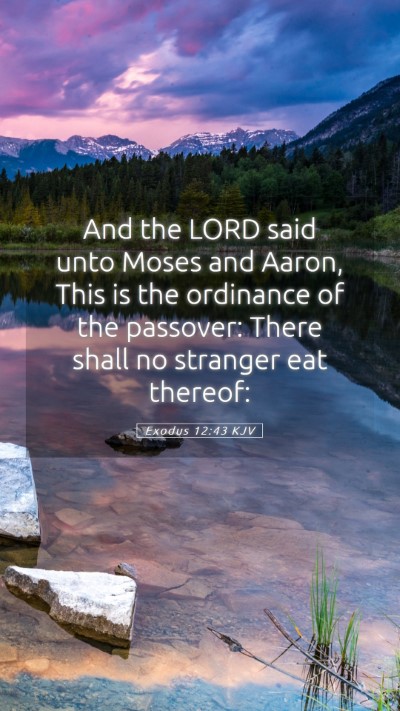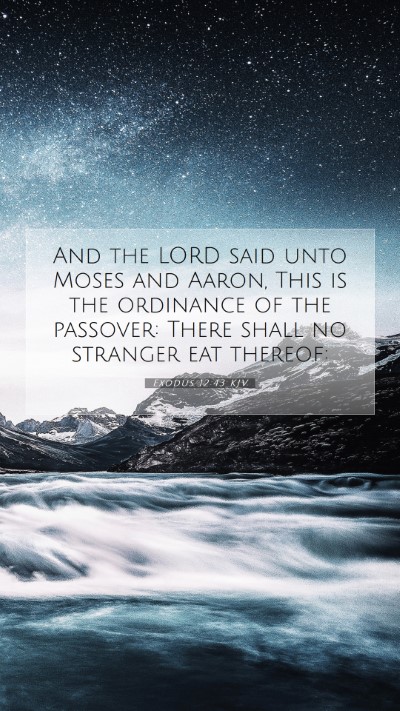Understanding Exodus 12:43
Exodus 12:43 states: "And the LORD said unto Moses and Aaron, This is the ordinance of the passover: There shall no stranger eat thereof." This verse is part of the instructions God gives regarding the Passover, a pivotal event in Jewish history and a significant foreshadowing in Christian theology.
Summary of Meaning
In this verse, God delineates who is allowed to partake in the Passover meal, emphasizing the need for purity and lineage in worship. The essence of this ordinance illustrates the importance of a covenant relationship with God, which is foundational for understanding both Jewish and Christian faiths.
Bible Verse Commentary Insights
-
Matthew Henry's Commentary:
Henry emphasizes the significance of the Passover as a memorial of God's deliverance. The exclusivity of eating the Passover highlights that participation is reserved for those who are in covenant with God. The strangers referred to are those not in the Israelite lineage, indicating that full acceptance into the community is required to partake in this sacred meal.
-
Albert Barnes' Notes:
Barnes elaborates on the necessity of homes being marked with blood as a divine ordinance for protection. The restriction on strangers illustrates that spiritual connection and dedication to the covenant are needed for salvation, foreshadowing the New Testament theme of being in Christ for salvation.
-
Adam Clarke’s Commentary:
Clarke notes that the term "stranger" can refer to foreigners, emphasizing that only those who become part of Israel through faith may share in the Passover. This has broader implications for inclusivity in God’s family as seen in the New Testament, where believers are grafted into the covenant.
Historical Context
The Passover was instituted during the last plague in Egypt, which demonstrated God’s power and judgment. It is crucial to recognize the cultural and covenantal setting in which these instructions were provided; the Israelites were about to experience liberation from slavery, marking a new phase of identity for them as God's chosen people.
Theological Significance
This ordinance does not merely govern participation in a meal; it represents the holiness of God and the necessity of atonement. It illustrates the concept of unworthiness in the hereafter without faith, paralleling Christian teachings on communion and the Body of Christ.
Application to Daily Life
Understanding the significance of this verse leads to the thoughtful reflection on our own relationship with God. Participation in spiritual rituals today requires an understanding of our standing with God, underscoring the need for personal faith and commitment.
Cross References
- Exodus 12:48 - Addresses the inclusion of the foreigner who is willing to convert.
- Exodus 12:24-27 - Gives further instructions regarding the Passover and its observance.
- Leviticus 22:10 - Provides guidance on who may approach God's offerings and sacrifices.
- Matthew 26:29 - Connects the Passover meal with Jesus' Last Supper, indicating a new covenant.
- Romans 11:17 - Discusses how Gentiles are grafted into the promises of Israel.
Conclusion
Exodus 12:43 is a foundational scripture that informs our understanding of God's covenant, the significance of holiness, and the preparation for God's deliverance. Through this passage, we glean insights into biblical exegesis and the essential nature of spiritual community.
Further Study Resources
For those engaged in Bible study groups or seeking online Bible study, consider utilizing a variety of Bible study tools and guides that focus on the themes found within Exodus 12:43. Resources such as commentaries and scriptural analyses can enhance understanding and facilitate deeper insights into the meaning of Bible verses.


